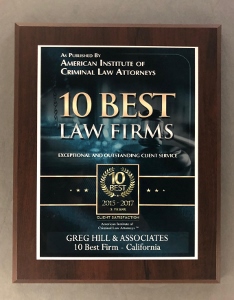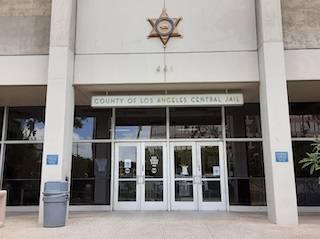When a person is in jail, he or she wants to talk to his family, loved ones and his or her attorney. Under Penal Code § 851.5, an arrestee is permitted three local phone calls within a three hour period after being booked. Local telephone calls are free. If one wants more than three calls during the first three hours, the jailer has discretion to allow this.
Phone calls to an attorney will necessarily involve a discussion of the facts. He or she may have urgent questions for the attorney and, in order to answer, the attorney will necessarily have to know the case facts and what the client did or did not do. Naturally, the client will worry about incriminating information being gathered by an eavesdropping listener or the phone call being recorded.
While Penal Code § 636 forbids eavesdropping on a call between an attorney and a client, all phone calls from jail are automatically recorded by a private phone company. The calls can then be reviewed at a later time by police, or a district attorney if they believe the calls may contain evidence of witness intimidation, discussions about escaping from jail or other specified offenses. Penal Code § 629.50 – 629.98; 18 U.S.C. § § 2516- 2518.
In some counties, attorneys can seek an exemption to have their office phone number exempted from recording. When the client calls the number from the jail, the usual recording that “this phone call may be monitored” is absent. In other counties, such as in Orange County, there are special phones that inmates can use to call attorneys and such calls are not recorded. All calls from prison, on the other hand, are recorded unless the inmate obtains an order exempting his call from recording.
While such provisions may seem reassuring to some, it is prudent to be aware that all other calls (i.e. not to an attorney) are subject to more active monitoring. Our office has experienced police using a client’s statement to his family, on a call placed from the police station, against him. In that call, for example, our client admitted he had drank seven or eight beers before driving.
Likewise, it is best if the client does not speak to any witness from jail, as such calls can be used against the client as attempts to dissuade a witness or an admission of guilt.
People v. Cribas (1991) 231 Cal.App. 3d 596, 282 Cal Rptr. 538.

Admissions of guilt are also likely or a least possible when a client in jail speaks to a bail bondsman, an employer because he is missing work, or a family member arranging an attorney. Jail personnel can certainly overhear such conversations and report them.
Kuhlmann v. Wilson (1996) 477 U.S. 436, 91 L.Ed. 2d 364, 106 S.Ct. 2616.
Other inmates also may not really be “other” inmates. While it is rare for police to use government informants posing as inmates, it does happen with more serious crimes. A client’s statements to such an informant certainly are admissible against the client as admissions.
Kuhlman, supra; People v. Hovey (1988) 44 Cal. 3d 543, 559, 244 Cal. Rptr. 121. This is so, courts have reasoned, because the inmate was not given
Miranda warnings to advise him or her of the Fifth Amendment rights at issue.
Illinois v. Perkins (1990) 496 U.S. 292, 296, 110 L. Ed. 243, 250, 110 S.Ct. 2394.
While this may seem like a trick, police officers often also offer to make a call for an inmate and then dial the number. The officer then stands nearby, as if waiting for the phone to use it when done, for another inmate. When this happens, police can then listen to what is said and use it against the client.
It is always best if a personal visit can be arranged instead of a phone call, although time does not always allow this. It merits mention, however, that it is a misdemeanor for a police officer having custody of an arrested person to willfully refuse or neglect to allow the arrested person’s attorney to visit the prisoner. Penal Code § 825 (b). This code section has been held to allow the arrestee to recover $500 in damages when such a visit is refused.
Beltran v. Appellate Dept (1977) 66 Cal. App. 3d 711, 136 Cal. Rptr. 211.
A face-to-face visit, without wire screens or glass between the attorney and client is best. This allows the review of documents, to have other documents signed, and simply, to eliminate the fear of eavesdropping. Such face-to-face meetings allow whispering, if the client fears the meeting is “bugged.” Most importantly, such a face-to face meeting allows the client to establish a good working relationship and rapport with the attorney, which is crucial to an effective defense.
As to any other conversations not involving someone in jail, Penal Code § 632 applies. Not only is it a crime to record without permission, but a person whose conversation is recorded can get a minimum of $5,000.00 damages through the statute. It is the secret recording that is the gravaman of the offense, not whether the conversation was heard by a private investigator or police. Many people believe that the conversation must be confidential and if it was in front of others it is not confidential. This is not required at all. The wrong is the recording without knowledge or permission. If you can prove this took place, hire an attorney to demand $5,000.
For more information about jail related issues, click on the following articles:
- If Visiting One in Jail, Be Careful What You Bring with You!
- What Is Private Jail?
- What Is House Arrest As an Alternative to Jail?
Contact Greg Hill & Associates
 Men's Central Jail Los Angeles
Men's Central Jail Los Angeles